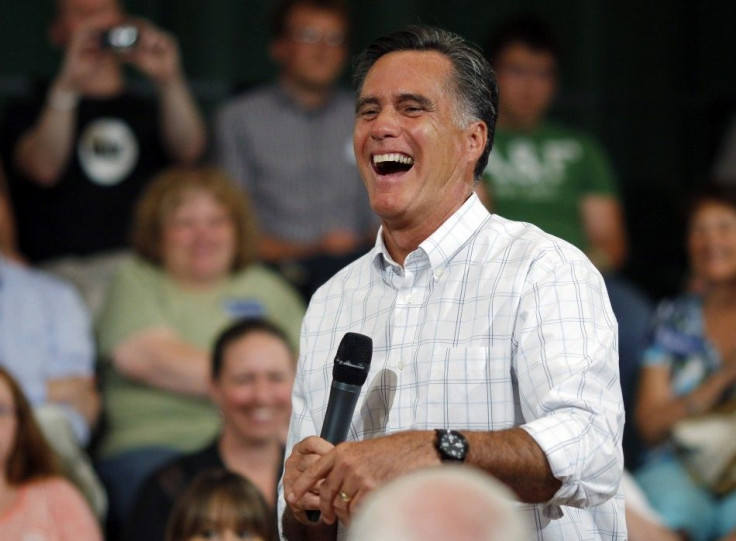New Hampshire Primary Results: Breaking Down Mitt Romney's Historic Win

Former Massachusetts governor Mitt Romney won a significant victory in New Hampshire Tuesday, carrying the open primary with 39.4 percent of the vote after only an eight vote win over Rick Santorum in Iowa.
But Romney's greatest success wasn't the win itself, which analysts had been expecting for weeks. Instead, it was about the 2012 New Hampshire exit polls, which showed that Romney's historic victory (he's the first Republican to win both Iowa and New Hampshire since 1976) also crossed more demographics and ideological concerns than any of his GOP rivals.
The overwhelming and all-encompassing win could be just what Romney needs to cement his place as the undisputed frontrunner in the Republican primary race. Below, here's a breakdown of how the Republican won, and what voters say were the most important issues at stake.
Romney by the Numbers
The former Massachusetts governor managed to garner support from across the ideological spectrum, proving that in New Hampshire, at least, Romney is able to appeal both to independent voters and mainline conservatives.
Romney's support was split almost exactly between voters who considered themselves very conservative (33 percent), somewhat conservative (48), moderate (39), and liberal (39 percent).
Among independents, the frontrunner also placed first, with 32 percent of the vote. Ron Paul and Jon Huntsman, with 30 and 23 percent, placed second and third, respectively.
The last-minute decisions that many primary voters made helped Romney as well. Nearly half of New Hampshire voters in Tuesday's primary chose a candidate in the week of the primaries, and 21 percent of the voters decided on Jan. 10.
Romney, already leading in the state, also picked up numbers here, with just under half of those who voted for him deciding on Romney in the final days.
Romney even managed to score well across age groups, a trend seen in Huntsman numbers, as well.
Unlike Paul, whose strength lay in the 18-29 age demographic, Romney was supported relatively evenly across all age demographics. Coming a distant second to Paul in the 18-24 year old group, he made up for the slight gap with strong support from the older age demographics.
Economy and Electibility
Romney's ally in the New Hampshire primary was undoubtedly the current financial crisis, despite unemployment rates continuing to fall. At least 60 percent of voters in the poll said the economy was the most important issue for them in the 2012 election, a number borne out by IBTimes on-the-ground discussions with voters on Tuesday. Also, 94 percent of Republicans and Independents are at least somewhat worried about the U.S. economy, while 69 percent are very worried.
Beyond the economy, however, the most important quality GOP primary voters were searching for was electability.
When asked the most important quality in a Republican candidate, many GOP voters passed by the right experience or a strong character to choose the ability to beat Democratic incumbent Barack Obama.
And that number held even with those who weren't enthusiastic about any of their choices. While the majority of New Hampshire voters were satisfied with the choice of the GOP candidates, 31 percent said they were unsatisfied.
Debate Factored into Historic Win
The combination of the economic crisis and Romney's perceived electability pushed him far over the edge in New Hampshire, even trumping religious concerns.
Despite the social issues platform Santorum championed in Iowa, evangelicals turned to Romney over the former Pennsylvania senator, citing financial experience and the ability to beat Obama.
But a final factor in Romney's spectacular success in the 2012 New Hampshire primary, and Huntsman and Paul's results as well, are the debates.
Over half of those polled said the debates were very important when they made their decision. Of those, 39 percent supported Romney, with Paul coming in at 22 percent and Huntsman at 17.
On to South Carolina
As Romney heads to South Carolina for the Jan. 21 primary, the former Massachusetts governor continues to ride the high of last night's victory, and what it says about his support base.
Over the weekend, several of his opponents, most notably Texas governor Rick Perry, went after Romney for his role in job losses associated with private equity firm Bain Capital LLC, a move Romney called desperate and that resulted in only a 1-2 point loss in the 2012 New Hampshire primary.
Romney comes in here 2-0, Chip Felkel, a Republican consultant in South Carolina, told Politico. At least at this point, I don't see an indication that the anti-Romney factions are going to be able to come together enough.
This is a game of perception and momentum, and he'll have both.
© Copyright IBTimes 2025. All rights reserved.




















